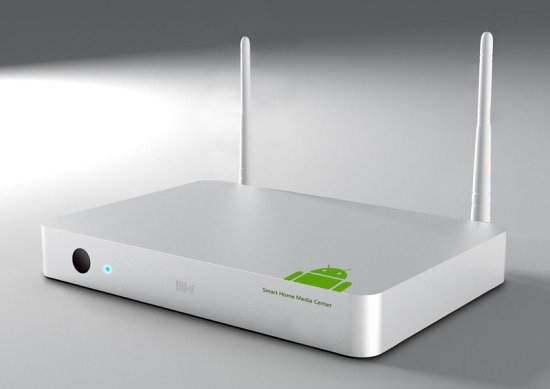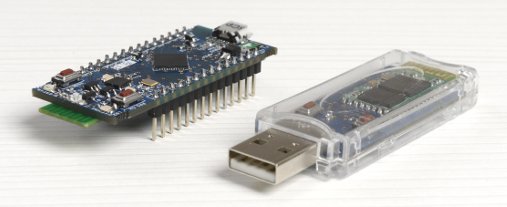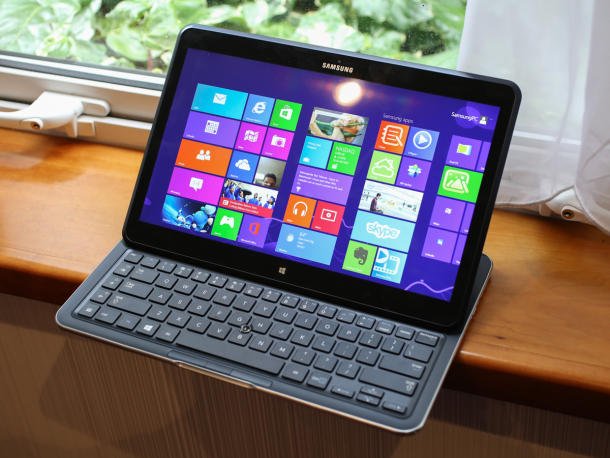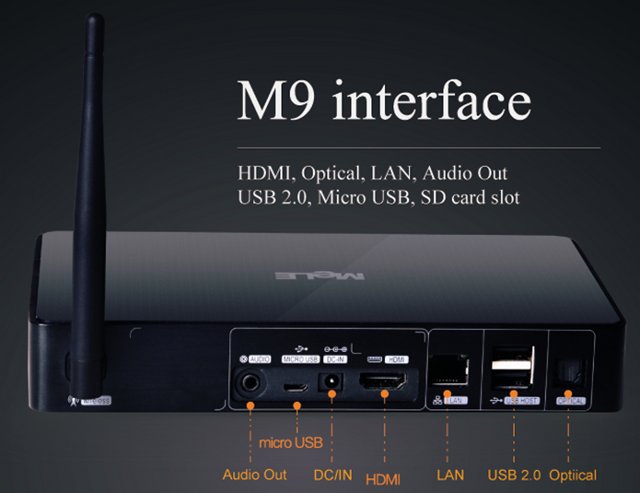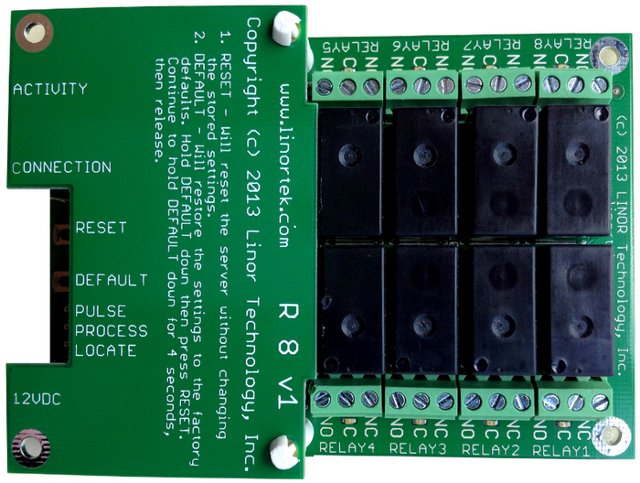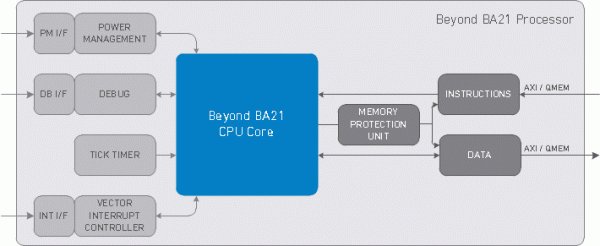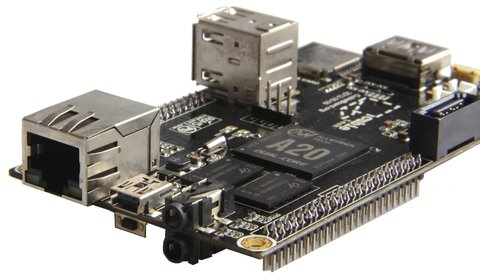We’ve got a another full-sized Android set-top box featuring Rockchip RK3188 quad core processor, this time with not one, but two external Wi-Fi antennas, as well as the usual 2GB RAM, and Android 4.2 operating system. Here are the specifications of the device: SoC – Rockchip RK3188 up to 1. 8 GHz with Mali-400 MP4 GPU System Memory – 2GB DDR3 Storage – 8 to 16GB Flash + 1x SD card Video Output – HDMI, and AV Audio Output – HDMI, AV, and optical S/PDIF Connectivity – 10/100M Ethernet, and Wi-Fi 802.11 b/g/n with 2 external Wi-Fi antennae USB – Micro USB OTG + 4x (or is it 2x?) USB host ports Power & reset buttons The device should be available within 20 days in China, but the product looks very similar to another Kaiboer STB based on RK3066 and selling for 519 RMB ($84), so it’s unlikely it will […]
Rockchip RK3066 is Now Part of Mainline Linux Kernel
After AllWinner A10/A13 SoCs, it’s time for another Chinese SoC to be included into mainline kernel, with Rockchip RK3066(a). A few hours ago, Heiko Stuebner’s commit for basic support in Linux kernel 3.11 has been accepted. This is the commit message: This adds a generic devicetree board file and a dtsi for boards based on the RK3066a SoCs from Rockchip. Apart from the generic parts (gic, clocks, pinctrl) the only components currently supported are the timers, uarts and mmc ports (all DesignWare- based). Don’t get too excited though, as it may take a little while until you can actually build a kernel for Rockchip RK3066 or AllWinner A10 from mainline linux source code. But this is definitely another step in the right direction, and hopefully, Chinese SoC companies will eventually get involved, instead of relying on the community, as it is in their best interest. To access the full list […]
$25 Babuino Stick & Board Let You Control Your Devices with Your Smartphone and Vice Versa
Babuino Stick and Babuino Board are tiny low cost Arduino-compatible USB dongle and board featuring Atmel AVR MCU, and Bluetooth 2.0 + EDR connectivity. Both have basically the same hardware, but Babuino Stick is more suited to control a computer or Smart TV via your smartphone, and Babuino Board can be used for robotics and automation projects. The device can also be used to control your smartphone (e.g. to write SMS) from your PC or Mac. Here are the specifications of these “Babuini”: MCU – Atmel ATXMega128A1 @ 32 MHz with 128KB flash program memory, 8KB boot code section, and 8KB SRAM. Master/Slave selectable Bluetooth 2.0 + EDR module Infrared transmitter and receiver USB – micro USB (board) and USB port (stick) User and reset push-buttons Headers (Board only) – ICSP pins, ADC & DAC, PWM, I2C & SMBus, SPI and UART LEDs – Bluetooth and User LED for both, […]
Samsung Unveils ATIV Q Android & Win8 Convertible Tablet, Galaxy NX DSLR Camera Running Android 4.2
Samsung Premiere 2013 took place yesterday in London, and the company announced 9 new products at the event. But 2 devices really stood out for me: ATIV Q – A 13.3″ tablet convertible to a notebook that runs Windows 8 and Android 4.2.2 simultaneously. Galaxy NX – a DSLR Camera running Android 4.2.2 supporting interchangeable lenses. Galaxy S4 Active was also interesting as it’s compliant with IP67, which means it’s dust proof and water resistant, so you don’t have to worry about dust / sand getting into the device, or dropping it into the water. It can stay under in 1 meter of water for 30 minutes, and even though the touchscreen won’t operate under water, you can still take underwater pictures during your snorkeling trip. Don’t expect it to work for diving though. Samsung ATIV Q (Preliminary) Specifications: Processor – Intel Core i5 (Haswell) GPU – Intel HD Graphics […]
Mele M9 Android Set-top Box Powered by AllWinner A31
After Mele A1000G Quad, Mele has just launched another model called M9, still based on AllWinner A31 quad core processor, with an external Wi-Fi antenna, but no SATA support. Mele M9 specifications: SoC – AllWinner A31 quad core Cortex A7 @ 1.5GHz + PowerVR SGX544MP2 GPU System Memory – 2GB DDR3 RAM Storage 16GB NAND Flash SD card slot Video Output – HDMI 1.4 Audio I/O – HDMI + S/PDIF optical out + Audio jack output Video Playback – Up to 2160p @ 60 Mbps USB – 3x USB 2.0 host ports, 1x mini USB 2.0 OTG port Connectivity Ethernet – 10/100Mbps Wi-Fi – 802.11 b/g/n Power Supply – 5V/2A The device runs Android 4.1 with a customized “Windows 8” user interface, and comes with a 5V/2A power adapter, an IR remote control (show below), an HDMI cable, a user’s manual, and a warranty card. The remote above as a […]
Linor Technology Fargo are Ethernet Boards with 4 to 8 Relays
There are more and more “IoT” solutions for home or industrial automation which allow you to control your lights or other equipments remotely with your smartphone or tablet. Many of them are DIY with boards such Arduino or Raspberry Pi combined with an expansion board featuring one or more relays, and some of them can be used out of the box such as Linor Technology Fargo boards. The company designed 4 boards that are powered by a Microchip PIC32 MCU with a small NOR flash, provide Ethernet connectivity, and run a small webserver that allows you to monitor and control the relays with any connected device that can run a web browser. Here are the hardware specifications for the boards (Fargo R8, R4, R4ADI and R4DI): MCU – Microchip PIC32 32-bit MCU Storage – 8MB flash on Fargo R8 for firmware and log storage (up to 10,000 items log) Sensors: […]
Beyond Semiconductor Announces BA21 Processor Core for Embedded MCUs
Beyond Semiconductor, a Ljubljana, Slovenia based company, has recently announced BA21, a 32-bit processor core, with 2.5 Coremark per megahertz, and clocked up to 125 MHz, that’s roughly equivalent to a Cortex M3 core @ 120 MHz. Target applications include mixed signal embedded processing, wireless communications ICs (e.g. Bluetooth, Zigbee, GPS), industrial Microcontrollers, and battery-powered or ultra-low-cost devices.If you’ve never heard about Beyond Semi, you may want to read my previous article about their BA25 core (Cortex A7/A8 equivalent) for a bit more details about the company. Here are the key features of BA21 core: 32-bit Processor Small silicon footprint (less than 10k gates) for lower leakage and dynamic CPU power Two-stage pipeline architecture Extreme Code Density for lower instruction fetching energy Advanced power management Dynamic clock gating and power shut-off of unused units Software- and hardware-controlled clock frequency Wake-up on tick timer or external interrupt Performance Up to 2.5 […]
Cubieboard2 Powered By AllWinner A20 is now Available for $59
Cubieboard is a low cost board based on AllWinner A10 with lots of ports and expansion pins, that supports Linux and Android. There’s now a new version called Cubieboard2 based on the same board but powered by AllWinner A20 dual core Cortex A7 processor instead, and still with 1GB RAM and 4GB Flash. As you can see the specifications are the same as the original Cubieboard except for the SoC: SoC – AllWinner A20 Dual core ARM Cortex-A7 processor with Mali-400 MP2 GPU System Memory – 1GB DDR3 Storage – 4GB internal NAND flash, up to 64GB on micro SD slot, and up to 2TB on 2.5″ SATA disk Video Output – HDMI Connectivity – 10/100M Ethernet, plus optional Wi-Fi module USB – 2x USB 2.0 HOST, 1x USB 2.0 OTG Expansion headers – 96 pins including I2C, SPI, RGB/LVDS, CSI/TS, FM-IN, ADC, CVBS, VGA, SPDIF-OUT, R-TP, and more Misc […]


